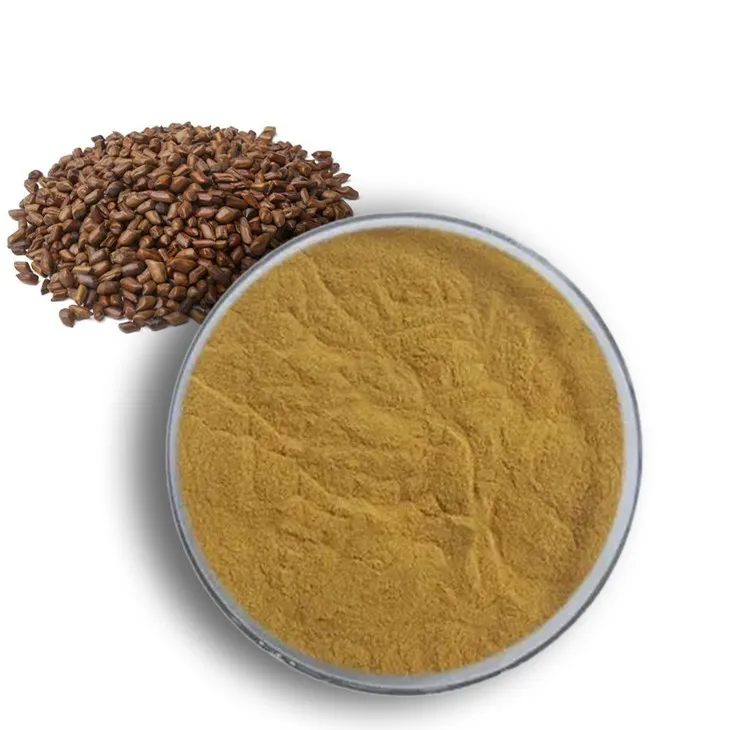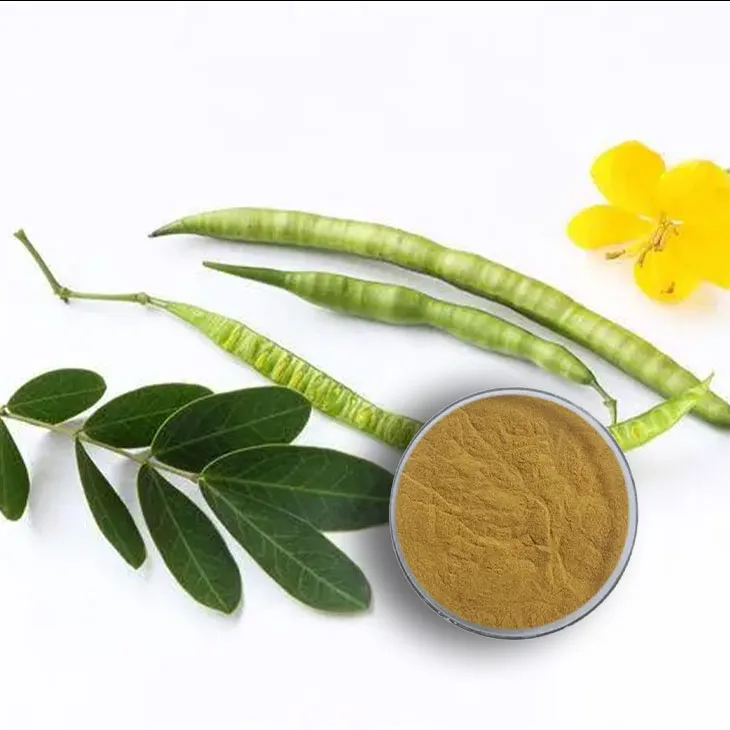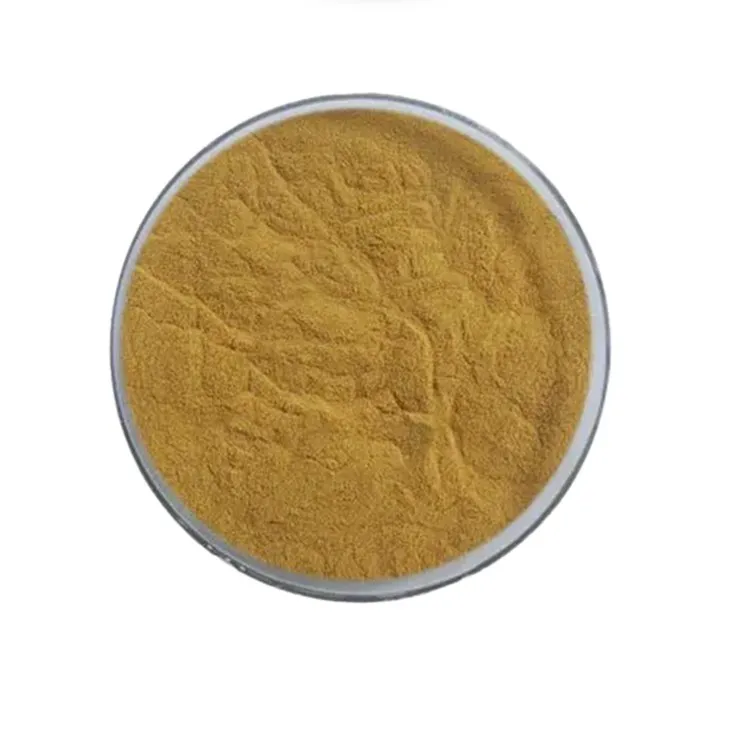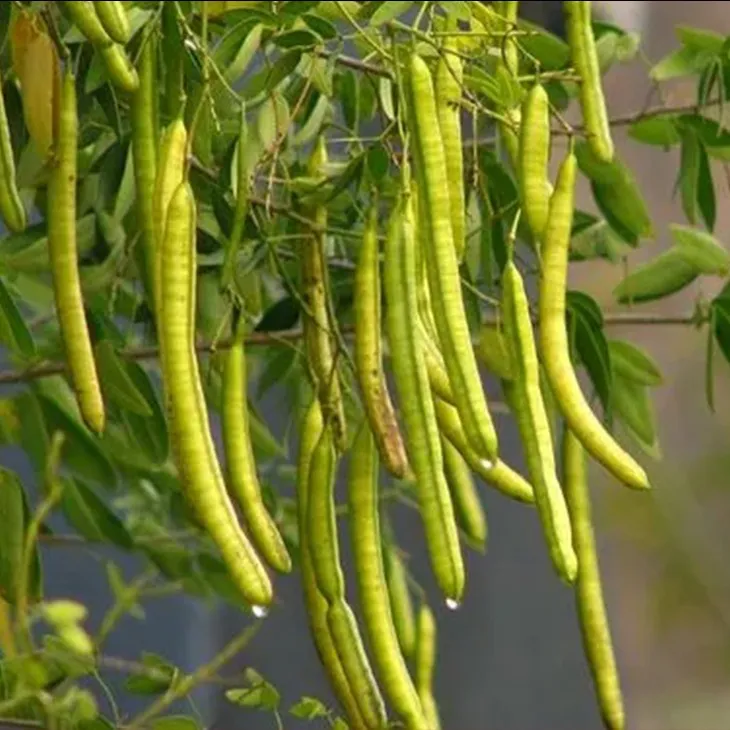- 0086-571-85302990
- sales@greenskybio.com
Use cassia seed extract to prevent diseases and enhance immunity.
2024-11-12

1. Introduction to Cassia Seed Extract
Cassia seed, a traditional Chinese medicinal material, has been used for centuries in Asian countries for its various health - promoting properties. The extract of cassia seed is rich in numerous bioactive compounds, which are the key to its potential in preventing diseases and enhancing immunity.
These bioactive compounds include flavonoids, anthraquinones, and polysaccharides. Flavonoids are well - known for their antioxidant activities, which can help protect the body's cells from damage caused by free radicals. Anthraquinones have laxative effects and may also play a role in regulating the body's internal environment. Polysaccharides are often associated with immune - modulating functions, making them important for overall health.

2. Antioxidant Properties of Cassia Seed Extract
2.1. Free Radicals and Their Impact
Free radicals are unstable molecules that are constantly produced in our bodies during normal metabolic processes. However, an excessive amount of free radicals can lead to oxidative stress. Oxidative stress is linked to a wide range of diseases, including heart disease, cancer, and neurodegenerative disorders. For example, in the case of heart disease, free radicals can damage the cells in the blood vessels, leading to inflammation and the formation of plaques.
2.2. How Cassia Seed Extract Fights Free Radicals
The flavonoids present in cassia seed extract act as powerful antioxidants. They work by donating electrons to free radicals, thereby neutralizing them and preventing them from causing damage to cells. This antioxidant activity helps to maintain the integrity of cell membranes, DNA, and other cellular components. Research has shown that the antioxidant capacity of cassia seed extract can be comparable to that of some well - known antioxidant - rich foods such as blueberries and green tea.
3. Impact on the Immune System
3.1. Immune - Modulating Effects of Polysaccharides
As mentioned earlier, the polysaccharides in cassia seed extract are important for the immune system. They can enhance the function of immune cells such as macrophages and lymphocytes. Macrophages are the first line of defense in the immune system, responsible for engulfing and destroying foreign invaders such as bacteria and viruses. Lymphocytes, on the other hand, play a crucial role in adaptive immunity, producing antibodies and coordinating the immune response. The polysaccharides in cassia seed extract can stimulate the production and activity of these immune cells, thus strengthening the overall immune system.
3.2. Regulation of Inflammatory Responses
An overactive or chronic inflammatory response can be detrimental to health and is associated with many diseases. Cassia seed extract has the ability to regulate inflammatory responses. It can suppress the production of pro - inflammatory cytokines, which are molecules that promote inflammation. By doing so, it helps to maintain a balanced immune response and prevent excessive inflammation. For example, in conditions like arthritis, where inflammation is a major problem, cassia seed extract may potentially reduce the severity of symptoms by modulating the inflammatory process.
4. Effects on Digestive Health
4.1. Role of Anthraquinones in Digestion
The anthraquinones in cassia seed extract have a laxative effect. They stimulate the intestinal muscles to contract, which helps in promoting bowel movements. This is beneficial for people who suffer from constipation. Regular bowel movements are important for maintaining a healthy digestive system as they help to remove waste and toxins from the body. Moreover, a healthy digestive system is closely related to overall health, as the gut is home to a large number of beneficial bacteria that play a role in immunity, nutrient absorption, and other physiological processes.
4.2. Protection of the Gastrointestinal Tract
Cassia seed extract may also protect the gastrointestinal tract. It can help to maintain the integrity of the intestinal lining, which acts as a barrier against harmful substances. Some studies suggest that the extract may have anti - ulcer properties, which could be due to its antioxidant and anti - inflammatory effects. By protecting the gastrointestinal tract, it ensures proper digestion and absorption of nutrients, which in turn supports the overall health of the body.
5. Impact on Cardiovascular Health
5.1. Lowering Blood Pressure
There is evidence to suggest that cassia seed extract may have a role in lowering blood pressure. It may act on the blood vessels, causing them to relax. When blood vessels relax, the resistance to blood flow decreases, resulting in lower blood pressure. High blood pressure is a major risk factor for heart disease and stroke, so any natural substance that can help regulate blood pressure is of great importance.
5.2. Cholesterol - Lowering Effects
Cassia seed extract may also have an impact on cholesterol levels. It could potentially reduce the levels of LDL - cholesterol (the "bad" cholesterol) in the blood. High levels of LDL - cholesterol are associated with an increased risk of atherosclerosis, a condition in which fatty deposits build up in the arteries. By reducing LDL - cholesterol, cassia seed extract may help to keep the arteries clean and reduce the risk of heart disease.6. Potential Anti - Cancer Properties
6.1. Inhibition of Cancer Cell Growth
Some studies have shown that cassia seed extract may have anti - cancer properties. The bioactive compounds in the extract may inhibit the growth of cancer cells. For example, the flavonoids may interfere with the cell cycle of cancer cells, preventing them from dividing and multiplying uncontrollably. However, more research is needed in this area to fully understand the mechanisms and potential of cassia seed extract in cancer prevention and treatment.
6.2. Inducing Cancer Cell Apoptosis
Another way in which cassia seed extract may combat cancer is by inducing apoptosis, or programmed cell death, in cancer cells. Apoptosis is a natural process by which the body gets rid of damaged or abnormal cells. By promoting apoptosis in cancer cells, the extract may help to eliminate cancer cells from the body. But again, further research is required to confirm these effects and to determine the appropriate dosage and application methods for potential cancer - related uses.7. Considerations for Using Cassia Seed Extract
7.1. Dosage and Administration
When using cassia seed extract, it is important to determine the appropriate dosage. The dosage may vary depending on factors such as age, health condition, and the intended use. It is advisable to consult a healthcare professional before starting any supplementation. In general, the extract can be taken in the form of capsules, powders, or tinctures.
7.2. Possible Side Effects
Although cassia seed extract is generally considered safe, some people may experience side effects. The anthraquinones in the extract can cause diarrhea if taken in excessive amounts. Also, in rare cases, allergic reactions may occur. People with pre - existing medical conditions, such as kidney or liver problems, should be especially cautious when using cassia seed extract and should consult their doctor first.8. Conclusion
Cassia seed extract offers a wide range of potential health benefits, from preventing diseases through its antioxidant and anti - inflammatory properties to enhancing the immune system. Its effects on various body functions such as digestion, cardiovascular health, and potentially cancer prevention make it an interesting area of research. However, more studies are needed to fully understand its mechanisms of action and to ensure its safe and effective use. With proper research and regulation, cassia seed extract may become an important natural supplement for maintaining overall health and well - being.
FAQ:
What are the main antioxidant components in cassia seed extract?
Cassia seed extract contains various antioxidant components. Flavonoids are among the main ones. These flavonoids can scavenge free radicals in the body, reducing oxidative stress. Another important component is phenolic acids, which also contribute to the antioxidant activity of the extract.
How does cassia seed extract enhance immunity?
Cassia seed extract can enhance immunity in multiple ways. It may modulate the function of immune cells, such as macrophages. By promoting the phagocytic ability of macrophages, it helps the body better defend against pathogens. Additionally, it may also influence the production of cytokines, which are important signaling molecules in the immune system, thus enhancing the overall immune response.
Can cassia seed extract prevent specific diseases?
Yes, it has the potential to prevent certain diseases. For example, due to its antioxidant properties, it may help prevent cardiovascular diseases by reducing oxidative damage to blood vessels and preventing the formation of atherosclerotic plaques. It may also play a role in preventing some metabolic disorders, as it can influence lipid and glucose metabolism in the body.
Are there any side effects of using cassia seed extract?
When used in moderation, cassia seed extract is generally considered safe for most people. However, excessive consumption may cause some side effects. It may lead to gastrointestinal discomfort, such as diarrhea or abdominal pain in some individuals. Also, in rare cases, it may cause allergic reactions in those who are sensitive to it.
How should cassia seed extract be consumed for the best preventive and immunity - enhancing effects?
The appropriate consumption method depends on various factors. It can be taken in the form of supplements, following the recommended dosage on the product label. Some people also use it in herbal teas. However, it is important to consult a healthcare professional before starting any new supplementation regimen to ensure it is suitable for individual health conditions.
Related literature
- Antioxidant and Immune - Modulating Effects of Cassia Seed Extract"
- "The Role of Cassia Seed Extract in Disease Prevention: A Comprehensive Review"
- "Cassia Seed Extract: Chemical Composition and Its Impact on Health"
- ▶ Hesperidin
- ▶ citrus bioflavonoids
- ▶ plant extract
- ▶ lycopene
- ▶ Diosmin
- ▶ Grape seed extract
- ▶ Sea buckthorn Juice Powder
- ▶ Beetroot powder
- ▶ Hops Extract
- ▶ Artichoke Extract
- ▶ Reishi mushroom extract
- ▶ Astaxanthin
- ▶ Green Tea Extract
- ▶ Curcumin Extract
- ▶ Horse Chestnut Extract
- ▶ Other Problems
- ▶ Boswellia Serrata Extract
- ▶ Resveratrol Extract
- ▶ Marigold Extract
- ▶ Grape Leaf Extract
- ▶ blog3
-
Cranberry Plants and Skin - care Products.
2024-11-12
-
Lily extract
2024-11-12
-
Acai Berry Extract
2024-11-12
-
Rose Hip Extract
2024-11-12
-
Passionflower Extract
2024-11-12
-
Grape Leaf Extract
2024-11-12
-
Natural grape seed extract
2024-11-12
-
Plantain extract
2024-11-12
-
Nettle leaf extract
2024-11-12
-
Red Date Extract
2024-11-12
-
Citrus Aurantii Extract
2024-11-12





















